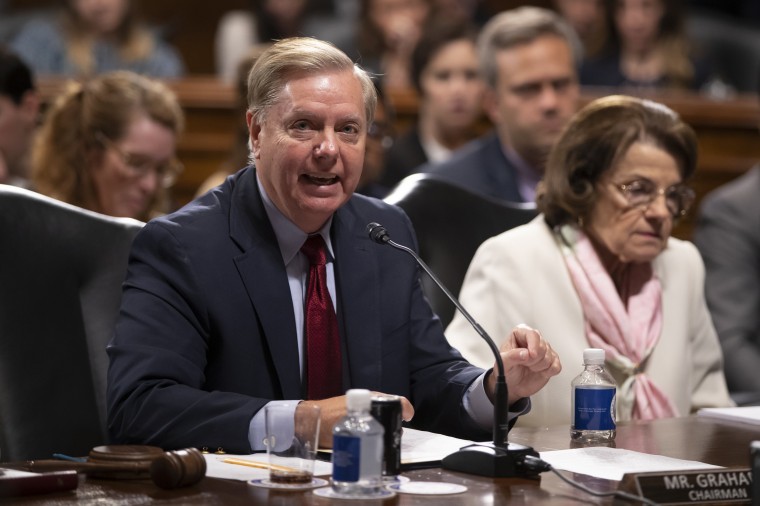Sen. Ron Johnson (R-Wis.), chairman of the Senate Homeland Security Committee, should probably be quite busy right now. After all, the United States is dealing with several overlapping crises, many of which relate directly to his panel's jurisdiction.
And yet, the Republican senator appeared on Fox Business yesterday, complaining about the investigation into Hillary Clinton's emails. It came on the heels Johnson and the GOP members of his committee moving forward with plans to issue subpoenas related to investigating the investigation into the Russia scandal. The effort, unsubtle in its ugly partisanship, is intended to pursue anti-Obama conspiracy theories ahead of Election Day 2020.
What's more, the Wisconsin lawmaker isn't the only one playing this ridiculous game. As the Washington Post's Dana Milbank noted in his latest column that Senate Judiciary Committee Chairman Lindsey Graham (R-S.C.) last week "convened his panel this week to launch yet another investigation into the Obama administration."
Who cares about the virus, economic collapse and unrest? President Trump has said he wants Graham to investigate the investigation into Russian election interference, and Graham complied. With party-line votes, he circumvented decades-old rules to give himself unilateral power to issue subpoenas to Trump's favorite villains: John Brennan, James Clapper, James Comey, Andrew McCabe, Nellie and Bruce Ohr, Lisa Page and Peter Strzok, John Podesta, Susan Rice and more.
An Associated Press report added that Senate Judiciary Committee "rarely moves forward on subpoenas without bipartisan support, and hasn't done so in more than a decade." Evidently, Graham didn't care.
Every effort from Senate Democrats on his panel to move the process in a fairer and more constructive direction was dismissed out of hand.
Among the most striking elements of this is how transparently political the nonsense is. Folks like Johnson and Graham are barely even trying to keep up appearances.
They know there's plenty of actual work their committees could (and should) be tackling right now on important issues. They know their assorted conspiracy theories are recognized as an obvious electoral scheme. Thy even know that there is nothing meaningful for these investigations into investigations to turn up.
But they're doing it anyway -- in part because Donald Trump wants them to; in part because it might generate some excitement within their party's far-right base; and in part because Republicans hope to create a cloud of controversy around Joe Biden ahead of his showdown with their party's president.
In late May, Senate Minority Leader Chuck Schumer (D-N.Y.) publicly called on Senate GOP leaders to focus on actual, pressing work. He derided the Senate Republicans' "conspiracy caucus" and their willingness to turn Senate institutions "into an extension of the President's re-election campaign."
Graham and Johnson didn't respond to Schumer directly, but their actions made clear that the "conspiracy caucus" will not be deterred.

